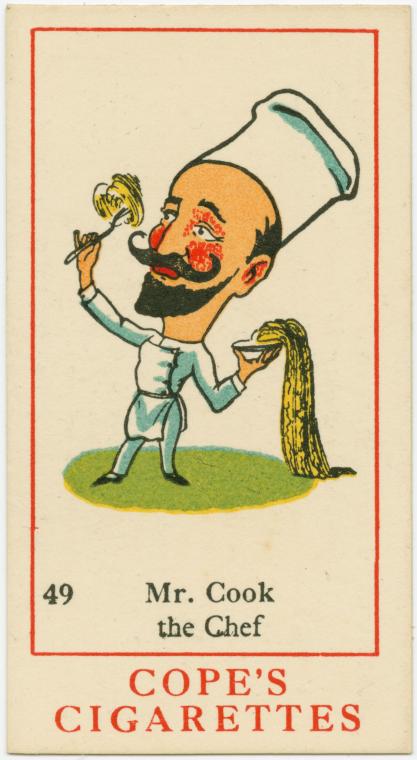Reader’s Den, Food for Thought
Finishing Up: "Kitchen Confidential"

The chapter called Dessert, chronicles a day in the life at Les Halles, where Bourdain was executive chef at the time. He details the business down to the nitty gritty, how things run smoothly, his reliance on good staff, and what everyone does on daily basis. From taking stock in the morning to deliveries in the afternoon and the dinner rush when its "Fred and Ginger time," and the chefs do a rapid dance in the kitchen to get the plates out on time. Each position is respected and its importance in the kitchen is also explained from the runners to the sous chef, who, "in an ideal situation, is closer to me than my wife."
Finally, in the last chapter, Coffee and a Cigarette, Tony pays homage to some of the more respected celebrity chefs and shall we say, more conventional management techniques. Bourdain admits that although he's written a book on what does and doesn't work in a restaurant kitchen, he says that his own brand of macho chaos (blasting Sex Pistols on cassette, cramped, crowded kitchens and encouraging locker room behavior) works for him, other successful kitchens run very differently. He says, "I've left a lot of destruction in my wake and closed a hell of a lot of restaurants." He may be akin to Hunter S. Thompson in the kitchen, but he's an entertaining and clever writer. By the end of the book, I felt like I knew him, his voice is clear and distinct.
I enjoyed the book, how about you? Did it change your willingness to eat out at a restaurant? Have you ever worked in the food industry? How do Bourdain's experiences compare with yours? Please share any comments you have below. Thanks for participating.
Read E-Books with SimplyE
 With your library card, it's easier than ever to choose from more than 300,000 e-books on SimplyE, The New York Public Library's free e-reader app. Gain access to digital resources for all ages, including e-books, audiobooks, databases, and more.
With your library card, it's easier than ever to choose from more than 300,000 e-books on SimplyE, The New York Public Library's free e-reader app. Gain access to digital resources for all ages, including e-books, audiobooks, databases, and more.
If you don’t have an NYPL library card, New York State residents can apply for a digital card online or through SimplyE (available on the App Store or Google Play).
Need more help? Read our guide to using SimplyE.
Comments
This is how it goes in careers
Submitted by Jazz Site (not verified) on November 23, 2010 - 1:28pm
Thanks so much for your
Submitted by Ursula Murphy on November 23, 2010 - 2:29pm